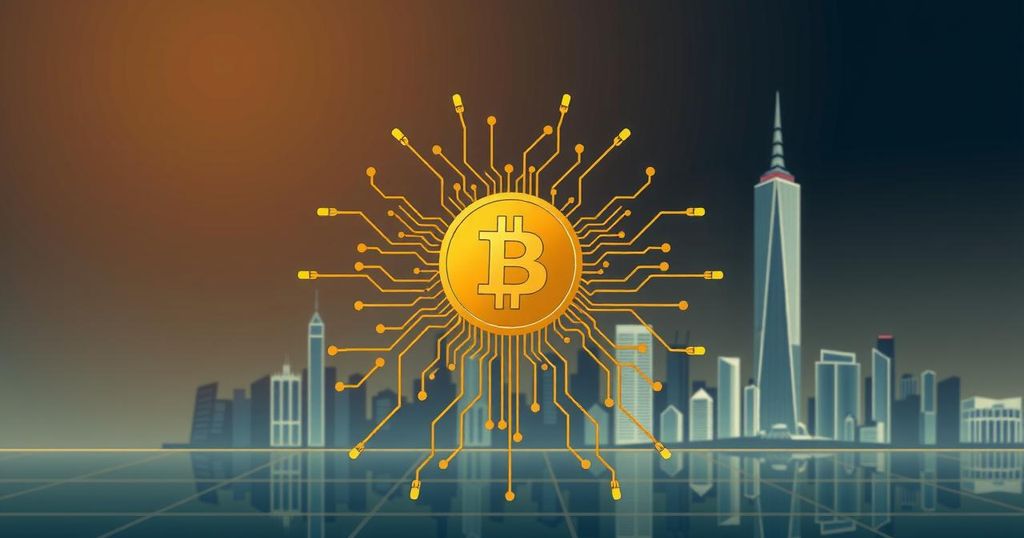Over the weekend, several significant memecoins emerged, including TST from BNB Chain, JAILSTOOL promoted by Barstool Sports, and CAR from the Central African Republic. These tokens demonstrated extreme market fluctuations, reflecting ongoing speculation in the cryptocurrency space amidst a recovery phase for Bitcoin and others. Engaging remarks from prominent figures have fueled interest, while questions about legitimacy remain, particularly concerning the CAR token.
Over the weekend, the exciting world of memecoins saw significant activity across the globe, involving notable entities such as Barstool Sports, the BNB Chain, and the Central African Republic. The emergence of new tokens like the BNB Chain’s TST, Barstool’s JAILSTOOL, and the CAR token reflects the ongoing volatility and speculative nature of the cryptocurrency market. Although Bitcoin and other cryptocurrencies are recovering from recent declines, the memecoin scene shows no signs of slowing down.
The BNB Chain’s TST token, birthed from a community tutorial, saw its market cap soar to $300 million thanks largely to mentions from Binance founder Changpeng Zhao. Zhao emphasized the engaging and entertaining aspects of memecoins, helping attract short-term traders while maintaining a candid stance on the speculative nature of these tokens. Despite being merely a test token at its inception, the recognition led to its significant market momentum.
David Portnoy, founder of Barstool Sports, also participated in this memecoin frenzy by promoting the JAILSTOOL token, which peaked at a remarkable market cap of over $200 million before adjusting to around $78 million. Portnoy’s previous involvement with memecoins, including a new coin themed around a memorable TV contestant, stirred controversy among market watchers who accused him of leading a potential pump-and-dump scheme. Nevertheless, he defended his actions, claiming transparency and humor in his approach to trading.
In a surprising turn, the Central African Republic launched its own memecoin, CAR, asserting its aim to facilitate national development and elevate its global presence. The token quickly reached a market cap of approximately $527 million, which is notably significant in relation to the country’s GDP. President Faustin-Archange Touadéra expressed confidence in the potential of cryptocurrency to support their goals, although doubts remain regarding the legitimacy and official association of the token with the government.
As the events unfolded, notable figures and exchanges responded to the flurry of activity among memecoins, highlighting both the humorous yet precarious nature of investing in such assets. This weekend’s developments underscore the unpredictable landscape of the cryptocurrency market, where entertainment and speculation can merge in unexpected ways, enticing both enthusiastic traders and skeptics alike.
The phenomenon of memecoins has gained substantial traction in the cryptocurrency realm, with community-driven tokens that embody cultural moments often experiencing extreme price volatility. Recently, exchanges and influencers have played significant roles in driving interest and investment in these tokens, underscoring a blend of entertainment and speculation. Amidst broader crypto market fluctuations, these tokens demonstrate how quickly the landscape can shift based on social media influence and celebrity engagement, raising questions about the sustainability and genuine value of such assets.
In conclusion, the recent surge of memecoins led by entities like Barstool Sports, the BNB Chain, and the Central African Republic illustrates the intricate and often unpredictable nature of the cryptocurrency market. Events from this weekend highlight both the allure and risks associated with investing in such tokens, as speculation often overshadows tangible value. As the market continues to evolve, the cultural appeal of meme-driven currencies will likely keep them in the spotlight, albeit with inherent volatility.
Original Source: www.coindesk.com






